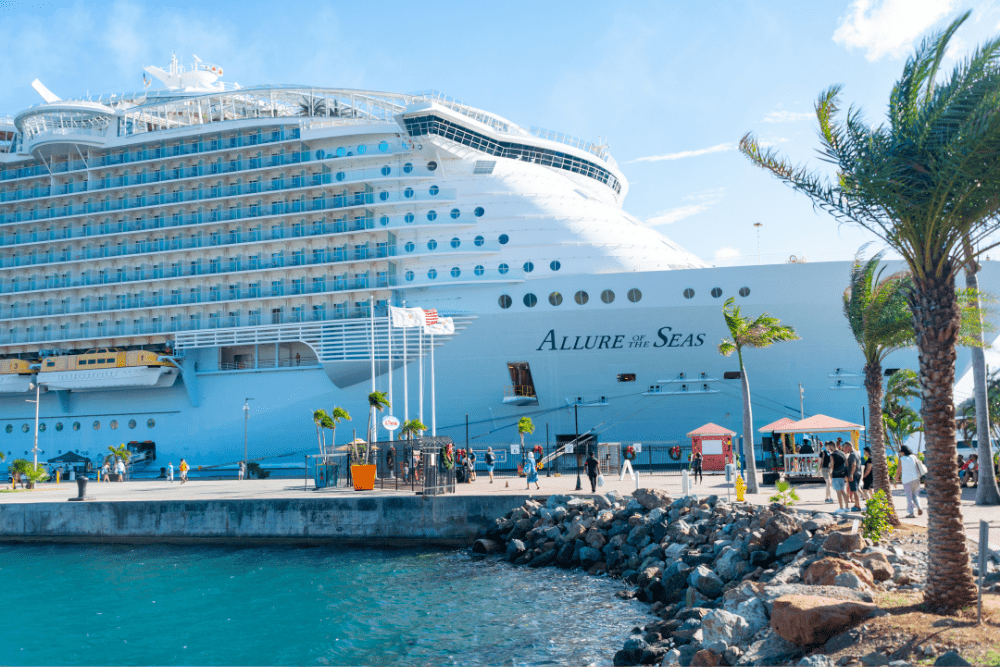It’s not news that the governor of Florida has been at odds with the CDC over their conditional sail order. What is new: something that recently happened regarding the state’s lawsuit against the Centers for Disease Control and Prevention.
A U.S. District Court Judge in Tampa granted a preliminary injunction against the sailing order issued by the CDC, pushing it out to July 18. After that, the conditional sailing order set forth by the CDC will remain, but some of the non-binding aspects of it will not apply.
What does this mean for the future of cruise ship sailing, and what is in the CDC conditional sailing order, anyway? Read on to find out more.
The Conditional Sailing Order
The CDC lifted its cruise ship ban for North America last fall, but that obviously doesn’t mean cruising simply picked up where it left off pre-COVID. The CDC, as well as the Department of Health and Human Services, instead implemented a more phased approach to the resumption of cruising – what is referred to as the conditional sail order.
The highlights of this order are:
Crew Testing for COVID
In order for a cruise line to apply for a Conditional Sailing Certificate, they must first test all of the crew currently onboard for COVID. The CDC has to approve the process by which the samples are collected, plus the laboratory used to test the samples. Then, the cruise line must report the findings to the CDC.
Any members of the crew that come aboard after the initial testing must take a test the day they embark, then quarantine for 14 days. If they test positive, they may need to quarantine for longer.
Testing of Passengers
All passengers must have COVID testing performed both on embarkation and disembarkation. No one is to be allowed on board until their test comes back negative.
Additionally, any passengers disembarking will not be able to get to their destination until they’ve received a negative test result from a rapid test.

Testing Capabilities
In order to test passengers and crew, cruise ships must develop testing capabilities for anyone on board. The CDC has to approve the equipment and testing to be used.
Requirements for Operation
Cruise ships are also required by the order to conduct simulated voyages that put operational changes in practice during the simulated sailings. Cruise ships cannot offer sailings over seven days. They must notify passengers of the CDC warnings to their health and safety prior to making reservations.
Cruise lines must also engage standards for face coverings, hygiene, ship sanitation, and social distancing throughout the voyage.
Part of the CDC’s guidance for sailings stated that if 95 percent of passengers and crew were vaccinated, test sailings could be skipped.
What Happened With Florida’s Lawsuit
In April, Florida’s Attorney General filed a lawsuit in federal court, alleging that the restrictions placed on cruise lines by the CDC are an overreach of their authority. She claimed that the conditional sailing order is arbitrary, as well as a violation of the Administrative Procedure Act.
Florida filed the lawsuit, in part, because the governor and other state lawmakers have banned businesses – cruise ships included – from requiring customers to identify their vaccine status. This practice has become known as a “vaccine passport”.
The ruling allows the conditional sailing order to remain but makes it non-binding. Essentially, cruise lines can once again set sail without putting in place the CDC’s protocols.
How This Will Impact Sailings
How this ruling will ultimately impact sailing out of Florida is anyone’s guess, but some happenings give a clue as to how cruise lines will proceed.
For example, Celebrity Cruises will no longer require their passengers to show proof they’ve been vaccinated. Instead, they leave it up to the passenger to disclose their status as vaccinated or unvaccinated. If they do not share proof, they are subject to additional restrictions while on board, i.e. testing.

They also may be financially responsible for other protocols that take place on board if unvaccinated, such as:
- Antigen tests mid-cruise
- Wearing masks except when eating or drinking
- Possible restrictions from disembarking at certain ports
- Restrictions to certain seating areas and dining rooms for those who are unvaccinated
Some cruise lines are also talking about charging more for those who are unvaccinated to cover the cost of testing. They might require those who aren’t vaccinated to maintain travel insurance covering COVID-related issues.
About the Author:
Andrew Winston is a partner at the personal injury law firm of Winston Law. For over 20 years, he has successfully represented countless people in all kinds of personal injury cases, with a particular focus on child injury, legal malpractice, and premises liability. He has been recognized for excellence in the representation of injured clients by admission to the Million Dollar Advocates Forum, and named one of America’s Top 100 High-Stakes Litigators. Mr. Winston is AV Preeminent Rated by the Martindale-Hubbell Law Directory, enjoys a 10.0 rating by AVVO as a Top Personal Injury Attorney, has been selected as a Florida “SuperLawyer” from 2011-2020 – an honor reserved for the top 5% of lawyers in the state – was voted to Florida Trend’s ”Legal Elite,” recognized by Expertise as one of the 20 Best Fort Lauderdale personal injury attorneys, named one of the Top 100 Lawyers in the Miami area for 2015-2017, and one of the Top 100 Lawyers in Florida for 2015-2017 and 2019.







